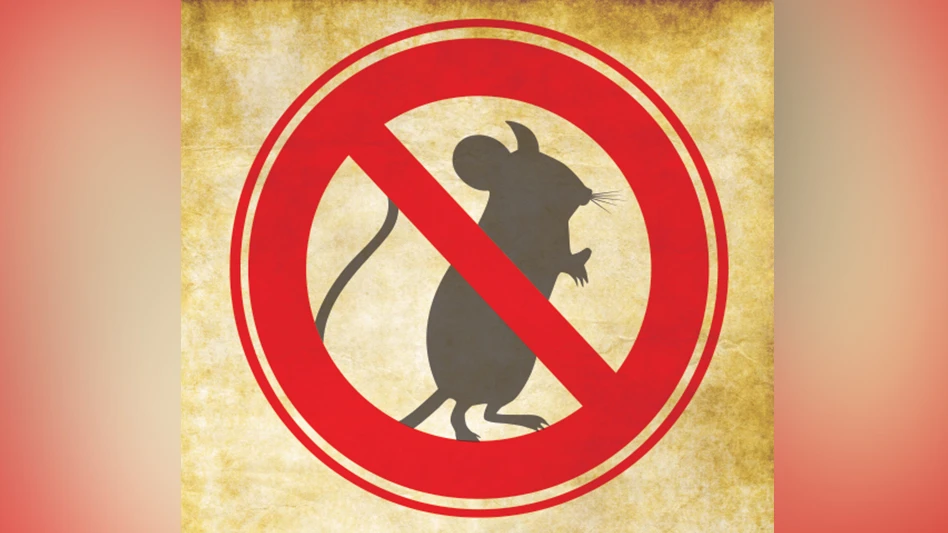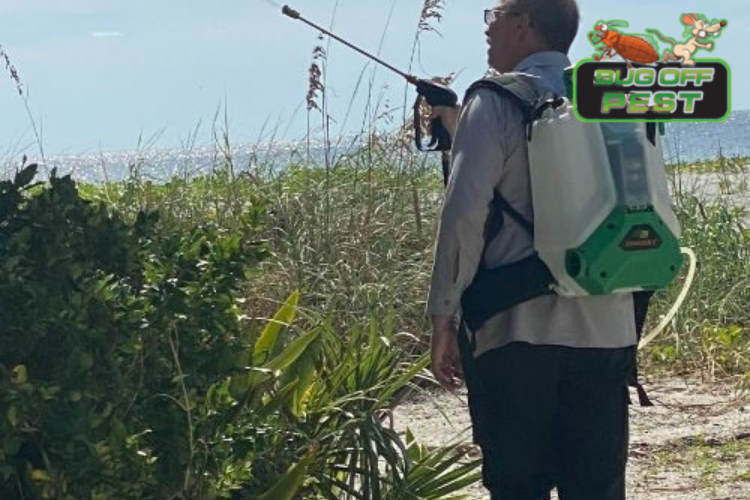Powerful Termite Treatment Port Charlotte to Safeguard Your House
Wiki Article
Uncover the Relevance of Parasite Control in Keeping a Healthy And Balanced Environment and Therapy Techniques

The Duty of Insects in Ecosystems
Bugs, usually seen entirely as nuisances, play a diverse duty in environments that is essential for preserving environmental balance. They add considerably to different environmental procedures, consisting of pollination, nutrient biking, and parasite control. For instance, numerous insect species, such as bees and butterflies, are essential pollinators for a wide array of plants, which subsequently sustains biodiversity and food manufacturing.In addition, bugs work as victim for many predators, creating a crucial link in food webs. This connection makes sure the survival of different types and assists manage populaces within ecological communities (Termite treatment Port Charlotte). Furthermore, decomposer pests, such as specific beetles and fungi, contribute in breaking down organic issue, hence enriching soil and assisting in nutrition recycling.
On the other hand, while bugs can be useful, their overpopulation or invasion right into non-native environments might disrupt these eco-friendly features. This intricacy emphasizes the relevance of understanding bug dynamics, as efficient pest administration methods should think about both their environmental roles and prospective effect on human activities. Stabilizing pest presence while minimizing damage is essential for protecting the stability of ecological communities and making sure agricultural performance.
Wellness Threats Connected With Pests
The visibility of insects in different settings extends beyond their eco-friendly roles, as they likewise present considerable health risks to human beings and animals. Several insects, consisting of parasites, rodents, and pests, are providers of diseases that can have major health effects. Rats are recognized to transfer hantavirus and leptospirosis, both of which can lead to extreme respiratory system and kidney concerns, respectively.Insects such as ticks and mosquitoes are infamous for spreading out vector-borne illness like malaria, dengue fever, and Lyme illness. These ailments can result in high morbidity and mortality rates, specifically in at risk populaces. In addition, bugs like roaches and vermins can intensify allergies and bronchial asthma, adding to breathing issues in individuals, specifically those with pre-existing problems.
Furthermore, the presence of bugs can cause mental stress and anxiety and pain, influencing general well-being. Contamination of food and surfaces by bug droppings and stays can cause foodborne ailments, highlighting the significance of keeping hygienic problems. As a result, understanding the health risks connected with bugs is critical in identifying the need of efficient pest management approaches to protect animal and human health and wellness.

Advantages of Efficient Pest Control
Efficient pest control is crucial for keeping a healthy and balanced and secure setting, as it consistently minimizes the numerous risks related to insect invasions. Wildlife removal services One of the main advantages of effective insect monitoring is the decrease of health dangers. Bugs such as rodents, mosquitoes, and cockroaches are vectors for conditions that can affect both pets and human beings. By regulating these populaces, the probability of illness transmission is considerably reduced.Additionally, efficient insect control safeguards residential property and structures from damage. Lots of insects, like termites and carpenter ants, can create comprehensive structural damages that may need costly repairs. By proactively managing these companies, property owners and infestations can safeguard their financial investments.
An additional significant advantage is the improvement of general lifestyle. A pest-free environment contributes to mental well-being and decreases tension related to infestations. Additionally, efficient bug control cultivates a safer atmosphere for kids and family pets, making sure that homes continue to be sanctuaries without disease-causing organisms and unsafe chemicals.
Usual Insect Control Strategies

In the world of parasite administration, numerous strategies are used to combat infestations successfully. These techniques can be generally categorized right into three main techniques: social, mechanical, and chemical controls.
Social control includes changing techniques to lower pest survival, establishment, and recreation. This might include crop rotation, appropriate cleanliness, and habitat manipulation, which jointly create a setting less helpful to pest proliferation.
Mechanical control utilizes physical techniques to get rid of bugs (Termite treatment Port Charlotte). Strategies such as catches, vacuum cleaners, and obstacles are typically used to directly get rid of parasites from an area. This method is particularly efficient for handling rodents and insects without using hazardous chemicals
Chemical control entails the application of pesticides to take care of insects. These substances can be categorized right into herbicides, fungicides, and insecticides, each targeting specific types of bugs. It is important to use these chemicals sensibly, adhering to security standards and regulations to minimize prospective damage to non-target species and the environment.
Each parasite control technique has its advantages and restrictions, and typically, an integrated approach incorporating multiple techniques generates the very best results in preserving a pest-free environment.
Lasting Parasite Monitoring Practices
Lasting parasite monitoring methods include an array of methods designed to reduce environmental effect while effectively controlling parasite populations. These practices prioritize making use of eco friendly techniques over chemical pesticides, consequently reducing the threat of harm to non-target species, consisting of valuable bugs, wildlife, and human beings.Integrated Insect Monitoring (IPM) is a foundation of lasting practices, incorporating biological, cultural, mechanical, and chemical strategies to handle parasites. Biological control involves presenting all-natural killers or parasites to subdue insect populations. Cultural methods, such as crop rotation and polyculture, interfere with pest life process and improve ecosystem durability.
Mechanical methods, such as traps or barriers, can efficiently stop insect accessibility without chemical treatment. Furthermore, preserving healthy ecosystems through correct dirt monitoring, plant health, and biodiversity can naturally alleviate pest problems.
Education and learning and recognition are crucial parts, encouraging communities and people to recognize insect hazards early and execute preventive actions. Termite treatment Port Charlotte. By cultivating an alternative technique that balances pest control with environmental stability, lasting bug management practices not only shield structures and plants but additionally add to a much healthier atmosphere for future generations
Verdict

Comprehending the health dangers connected with bugs is important in identifying the necessity of effective pest monitoring strategies to guard animal and human health.
Effective parasite control is necessary for preserving a risk-free and healthy atmosphere, as it constantly alleviates the countless threats connected with pest problems.Integrated Parasite Administration (IPM) is a keystone of lasting methods, incorporating organic, cultural, mechanical, and chemical strategies to take care of insects. By recognizing the function of bugs, acknowledging connected wellness dangers, and employing diverse therapy strategies, a lasting method to pest monitoring can be accomplished. Integrated Insect Administration (IPM) stresses an all natural methodology that reduces damage to valuable organisms while properly regulating insect populaces.
Report this wiki page